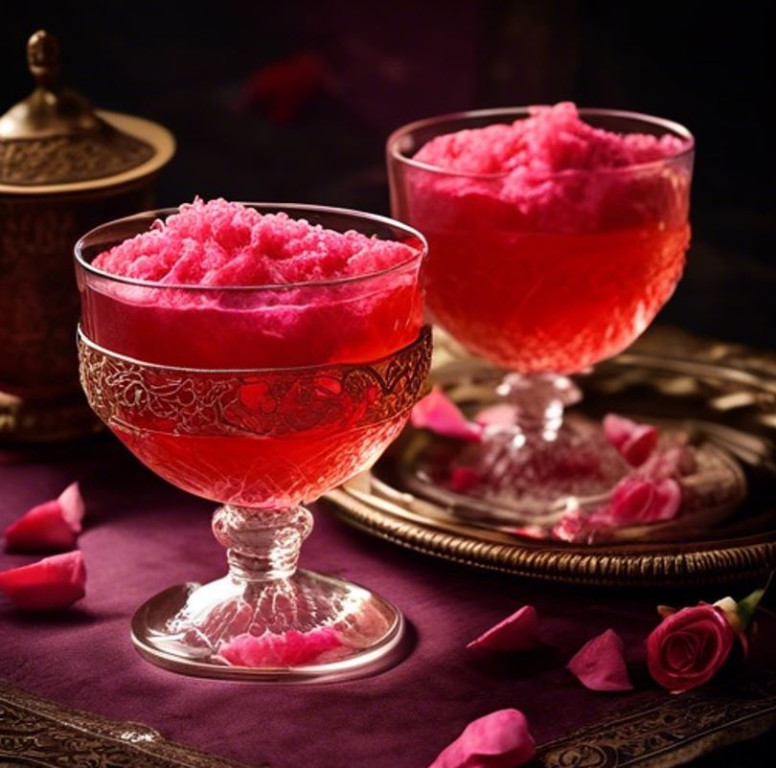The month of Ramadan is a special time for many Muslims,
filled with prayers, sharing, and of course, unique flavors. One of the
essential tastes of this particular month is the traditional Ramadan sherbets.
These beverages not only quench the thirst of those fasting in the hot summer
days but also add vibrancy to the iftar tables, representing a cultural
heritage.
Origin of Ramadan Sherbet:
Ramadan sherbets have their roots in the Ottoman Empire,
evolving from then to the present day as a traditional beverage. Suited for the
warm climate of the Middle East, these sherbets are known for their refreshing
and energizing qualities. Traditionally preferred during iftar meals and
special gatherings, these sherbets present different flavors and names in
various regions.
Popular Ramadan Sherbets:
Rose Sherbet: Made from rose petals, this sherbet brings a
mildly sweet taste and a pleasant aroma to the tables. It is often chosen as a
refreshing beverage after iftar.
Rosehip Sherbet: Rich in Vitamin C, rosehip is used during
Ramadan to boost the immune system. Its sour taste also provides a refreshing
sensation.
Date Sherbet: Dates, known for their energy-boosting
properties, are used to prepare date sherbet to quench thirst and provide a
quick energy source during iftar.
Amber Sherbet: A traditional Ottoman beverage, amber sherbet
is typically prepared with fresh ginger and lemon juice. It has an appetizing
and digestion-aiding effect.
Making Ramadan Sherbet at Home:
Ramadan sherbets are often homemade, allowing for the continuation
of special recipes passed down from generation to generation within families.
Here's an easy-to-follow traditional rose sherbet recipe you can prepare at
home:
Ingredients:
1 cup rose petals
2 cups water
2 cups sugar
Juice of half a lemon
Instructions:
Wash the rose petals and place them in a bowl.
Add 2 cups of water and let it steep for about 1 hour.
Add sugar, stir, and bring it to a boil.
Simmer for about 10 minutes after it starts boiling.
Strain the mixture, add lemon juice, and let it cool.
Once cooled, refrigerate it, and serve cold.
Ramadan sherbets are not just beverages; they symbolize
sharing, abundance, and traditions. Adding color and freshness to iftar tables,
these special drinks enhance the spiritual atmosphere of the Ramadan month.
Trying traditional recipes, learning from elders, and discovering sherbets that
suit your taste can be a delightful way to savor the refreshing flavors of
Ramadan.


